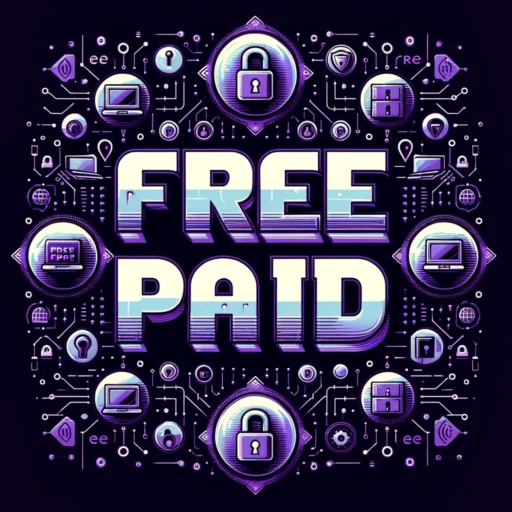
In the ever-evolving world of online privacy, the debate between free and paid Virtual Private Networks (VPNs) is increasingly relevant. As we step into 2023, the distinctions between these two types of VPN services have become more pronounced. This comprehensive comparison will delve into the technical and practical aspects of free versus paid VPNs, helping you make an informed decision based on your individual needs and expectations.
1. Security and Privacy
- Free VPNs: Often, free VPNs come with significant security concerns. They may lack strong encryption standards and could potentially log user data, which might be sold to third parties for revenue generation. The lack of a robust security infrastructure can also leave users vulnerable to cyber threats.
- Paid VPNs: Typically, paid VPNs invest more in security features, offering advanced encryption protocols like AES-256, and are more likely to follow a strict no-logs policy. They often include additional security features like kill switches and DNS leak protection.
2. Speed and Performance
- Free VPNs: Free VPN services are known for having slower speeds due to server overload and limited bandwidth allocation. This can significantly impact activities like streaming, gaming, and large downloads.
- Paid VPNs: Paying for a VPN usually means access to a larger network of servers and better bandwidth, resulting in higher speeds and more stable connections. This is crucial for bandwidth-intensive tasks.
3. Server Availability and Locations
- Free VPNs: The server options are typically limited with free VPNs, both in terms of quantity and geographic diversity. This can lead to overcrowded servers and less flexibility in bypassing geo-restrictions.
- Paid VPNs: They offer a wide range of server locations worldwide, allowing users more options to bypass geo-restrictions and find a server that offers optimal performance.
4. Data Limits
- Free VPNs: Many free VPNs impose data caps, limiting the amount of data you can use through the VPN. This can be a major drawback for data-heavy activities like streaming HD video or downloading large files.
- Paid VPNs: Most paid VPNs offer unlimited data usage, providing uninterrupted access to the internet without worrying about hitting a data limit.
5. Customer Support
- Free VPNs: Customer support is often limited or non-existent in free VPN services. This can be frustrating if you encounter technical issues or have questions about the service.
- Paid VPNs: They generally offer robust customer support, including 24/7 live chat, email support, and detailed online resources.
6. Additional Features
- Free VPNs: Additional features are usually sparse with free VPNs. You’re less likely to find advanced features like split tunneling, dedicated IP addresses, or server obfuscation.
- Paid VPNs: They often come packed with extra features, including specialized servers for streaming, P2P support, split tunneling, and more.
7. Advertising and User Experience
- Free VPNs: To generate revenue, free VPNs might show ads, which can be intrusive and detract from the user experience.
- Paid VPNs: Paid services typically offer an ad-free experience, leading to a more seamless and enjoyable user interface.
The choice between a free and a paid VPN in 2023 hinges on your specific needs and priorities. If top-notch security, high speeds, and a wide range of features are critical, a paid VPN is the way to go. However, for casual users with minimal requirements, a free VPN might suffice. It’s essential to research and understand the trade-offs, particularly regarding security and privacy, to make a choice that aligns with your online habits and requirements.